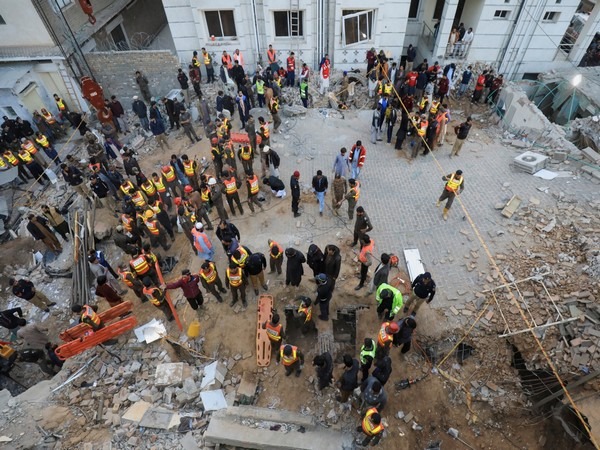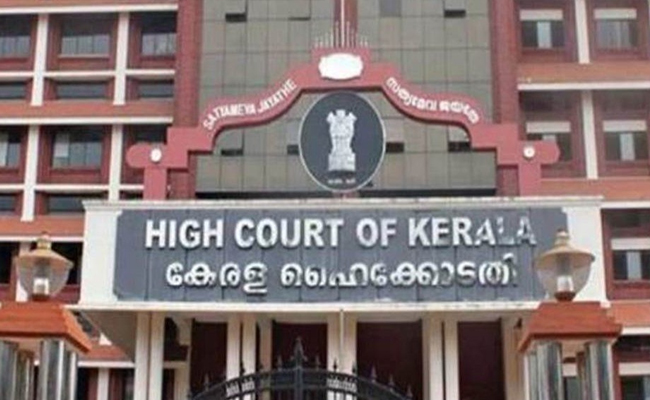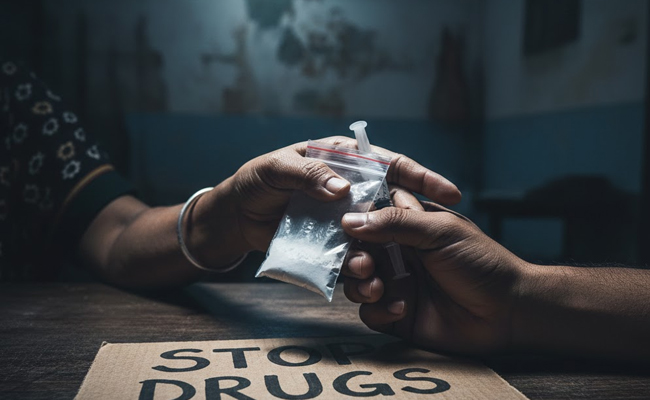Peshawar, Jan 31: The death toll from the suicide blast rose to at least 100 on Tuesday after rescue workers retrieved more bodies from the debris of the devastated mosque inside a major police facility in Pakistan's northwestern Peshawar city.
According to security officials, the suicide bomber who was present in the front row during the Zuhr (afternoon) prayers on Monday blew himself up, causing the roof to collapse on the worshippers.
Lady Reading Hospital (LRH) spokesperson Mohammad Asim said that 100 bodies had been brought to the medical facility.
Asim said 53 injured were currently being treated while seven had been admitted to the intensive care unit (ICU). He said that most of the injured were out of danger.
Most of the victims were policemen. At least a deputy superintendent of police, five sub-inspectors and the mosque's prayer leader Maulana Sahibzada Noorul Amin were among the dead.
The Tehreek-e-Taliban Pakistan (TTP), known as the Pakistani Taliban, claimed responsibility for the suicide attack, saying it was part of a revenge attack for slain TTP commander Umar Khalid Khurasani who was killed in Afghanistan in August last.
According to the Police Control Room Peshawar, more than two-hundred injured were brought to the Lady Reading hospital.
Capital City Police Officer, Peshawar (CCPO) Ejaz Khan told Geo TV that the head of the suspected suicide bomber was recovered from the blast site.
The suspected bomber was identified as 37-year-old Mohammed Ayaz son of Salim Khan from Mohmand agency.
"It is possible that the attacker was already present in the Police Lines before the blast and that he may have used an official vehicle [to enter]," he said. "(The) CTD is investigating the case," he said.
He said many policemen are still trapped under the rubble.
"Close to 300-400 policemen usually offer prayer at the Zuhr time. If a blast has taken place inside police lines then it is a security lapse but an investigation into the matter can reveal further," he said.
The bomber entered the highly secured mosque inside police lines where four layers of security were in place.
Provincial Police chief Moazzam Jah Ansari said they are investigating the blast and how the bomber entered the highly fortified mosque in the Police Lines area.
He expressed the apprehensions that the bomber might have been residing in the police lines before the blast as there are family quarters too inside the police lines.
Ansari admitted grave security lapses by the police and ordered a comprehensive investigation into the blast.
Talking to the media here Tuesday, he said that the search process for entrance to police lines was limited only to the main gate of the police lines.
He said 10-12 kg explosives were used in the blast. Explosives in parts shifted to police lines as construction activities are in progress these days in police lines.
The headquarters of the Peshawar Police, Counter-Terrorism Department (CTD), Frontier Reserve Police (FRP), Elite Force and telecommunications department are also located near the blast site.
A high-level investigation committee has been set up to look into the security lapses.
A preliminary investigation report of the blast has been sent to Prime Minister Shehbaz Sharif.
Meanwhile, funeral prayers for six policemen, including deputy superintendent of police, were offered earlier Tuesday at the Police Lines area.
On Monday night, collective funeral prayers for 27 policemen were offered in Police Lines area.
President Arif Alvi has condemned the attack.
"I strongly condemn the heinous & cowardly blast that has taken place in Peshawar mosque. The perpetrators will be found and punished. Condolences to families who have lost an innocent member & prayers for the injured. Terrorism must be buried forever," Alvi tweeted.
Prime Minister Shehbaz said the blast inside the mosque proves that those involved in the attack have "nothing to do with Islam."
"These terrorists are trying to instil fear by targeting those who perform the duty of defending Pakistan," he said, assuring the people that the coalition government will take strict action against those involved in the attack.
PTI Chairman and ex-premier Imran Khan strongly condemned the terrorist attack in the Peshawar mosque.
Last year, a similar attack inside a Shia mosque in the Kocha Risaldar area in the city killed 63 people.
The TTP, set up as an umbrella group of several militant outfits in 2007, called off a ceasefire with the federal government and ordered its militants to stage terrorist attacks across the country.
The group, which is believed to be close to al-Qaeda, has been blamed for several deadly attacks across Pakistan, including an attack on army headquarters in 2009, assaults on military bases, and the 2008 bombing of the Marriott Hotel in Islamabad.
In 2014, the Pakistani Taliban stormed the Army Public School (APS) in the northwestern city of Peshawar, killing at least 150 people, including 131 students. The attack sent shockwaves across the world and was widely condemned.
Let the Truth be known. If you read VB and like VB, please be a VB Supporter and Help us deliver the Truth to one and all.
Kochi (PTI): The Kerala High Court has set aside crucial stages of the land acquisition process for the proposed Sabarimala greenfield airport, holding that the state failed to properly assess the minimum land actually required for the project.
On December 30, 2022, the state government issued an order granting sanction for the acquisition of 2,570 acres of land, comprising the Cheruvally Estate and an additional 307 acres located outside it.
Justice C Jayachandran, delivering the judgment on a writ petition filed by Ayana Charitable Trust (formerly Gospel for Asia) and its managing trustee Dr Siny Punnoose, ruled the decision-making process under the Right to Fair Compensation and Transparency in Land Acquisition, Rehabilitation and Resettlement Act, 2013, was legally flawed.
The court, in its December 19 order, directed the state to restart the process by conducting a fresh social impact assessment limited to examining the minimum land requirement, followed by a fresh appraisal by the expert group and reconsideration by the government.
The petitioners had challenged several government actions, including the Social Impact Assessment (SIA) report, the expert committee appraisal, the state government order approving the acquisition, and the subsequent notification under Section 11 of the 2013 Act.
The land in question, mainly the Cheruvally Estate in Pathanamthitta district, is proposed to be acquired for building a new airport intended to serve Sabarimala pilgrims.
The court found that while the state is entitled to acquire land for public purposes, the law clearly mandates that only the "absolute bare minimum" extent of land required for a project can be acquired.
According to the court, this mandatory requirement under Sections 4(4)(d), 7(5)(b), and 8(1)(c) of the 2013 Act was not properly complied with.
Justice Jayachandran observed that the authorities had shown "manifest non-application of mind" in assessing how much land was genuinely necessary.
As a result, the SIA report, the Expert Committee report and the government order were declared invalid to the extent they failed to address this crucial requirement.
Since the Section 11 notification could only be issued after a valid completion of these steps, it too was quashed.
On the petitioners' allegation of fraud on power and colourable exercise of authority, the court did not give a final finding. It held that this issue is closely linked to determining the minimum land required and can only be examined after that exercise is properly completed.
Before concluding, the court suggested that for technically complex projects like airports, the state should include technical experts in the SIA team to ensure informed and lawful decision-making.
The writ petition was accordingly allowed, keeping other issues raised by the petitioners open for future consideration.





